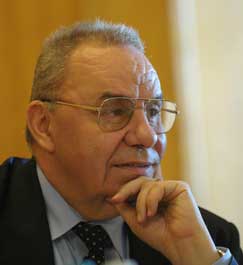The Dutch Ministry of Defense informs that part of the Hawk anti-missile defense system arrived in Romania. Dutch authorities refused to comment on the cases of cancer caused by the system to Dutch military personnel. Indeed, this will amount to admitting that they lied when stating that they informed their Romanian counterparts, before striking the deal.
Romanian authorities, be they officials in the ministry of defense or parliamentarians, do not show any interest for the topic, but Dutch civil servants have a lot of answering to do.
Parliamentarian Krista van Velzen questioned again the Dutch Ministry of Defense about the lies allegedly stated by deputy minister Cees van der Knaap, as showed in a previous article in Jurnalul National.
Part of that answer was that some of the Hawk systems were already transported to Romania. This is another piece of information the Romanian Ministry of Defense failed to make public.
On 1 February, van der Knaap stated in the Dutch Parliament, following an inquiry from van Velzen, that the Romanians "were aware of the controversies ssurrounding the Hawk missile defense systemt ⦠and they are pleased, and so are we, for being able to buy them from us."
Van Velzen asked the ministry at the time if the Romanian officials were fully informed of the health issues caused by the Hawk anti-missile defense system, and if it was not better to keep them on Dutch territory for safe storage. She also wanted to know if the Dutch ministry would agree to take back the systems already sold to Romania.
Van der Knaap answered then that his Romanian counterparts were fully informed and that he would not agree with canceling the contract.
The Romanian Ministry of Defense contradicted then the claims made by Van der Knaap, stating that it was not informed of the high incidence of cancer cases to Dutch military personnel handling the Hawks. Of course, this does not take off the hook Romanian authorities which had their own means for gathering information with help from their own diplomats and civil and military intelligence services.
The Dutch authorities continued to dodge questions asked by Jurnalul National and by Van Velzen, who on 24 August asked again her countryâs ministry of defense if it informed the Romanians on the health problems caused by the Hawks to the 212 military personnel who got cancer and other rare diseases.
Three weeks later and only a few days before the planned visit of Romanian PM, Calin Popescu Tariceanu, to The Hague, the Dutch Ministry of Defense answered that
"In the meeting with Romania on the sales of the HAWK we spoke on the
risks of radiation of the radar of this kind of weapon systems. In this
regard we illustrated that working with these systems has to be done by
strictly respecting the safety demands. In the discussion the Romanians
announced they were aware of the situation.
Romania is sold a good functioning weapon system and there is no reason
what so ever to suppose that the procurement should be annulled."
However, the answer does not state clearly of which "problems" were the Romanians aware, while their defense ministry said that it was not informed of the health risks.
One thing is certain though: the defense systems arrived in Romania and are ready to be handed over to Romanian authorities, the Dutch ministry stated.
The Hawk PIP III missile radar system cost Romania 23.5 million euros and the contract was sealed while Romanian public opinion was busy with parliamentary and presidential elections, while The Netherlands held the six-month presidency of the European Union Council.
At the 17 December EU Council, Romania had its accession treaty approved for signing in April 2005, in view of its accession on 1 January 2007.
Though both Dutch and Romanian officials portrayed the deal as a successful one, there are many shadowy aspects to it.
Apart from the controversy back in Holland, the defense systems are far from being in top shape after the many years they had been in use, and they were already due to be turned to scrap by the end of this year.
Belgium hoped to get rid of its Hawks too, when it unsuccessfully attempted to sell them to Turkey. Less lucky in dumping its Hawk systems on others, Belgium keeps them in storage now.
Also, as van Velzen and Wim van den Burg, president of the military trade unions, stated, the costs of exploiting the system is growing as it is less and less used by other countries.
Romanian authorities are not willing anymore to address this "successful deal" and hide behind the need to preserve confidentiality for reasons of national security.
Former officials keep quite too, as does former minister of defense, Ioan Mircea Pascu, who repeatedly refused comment when we contacted him.









